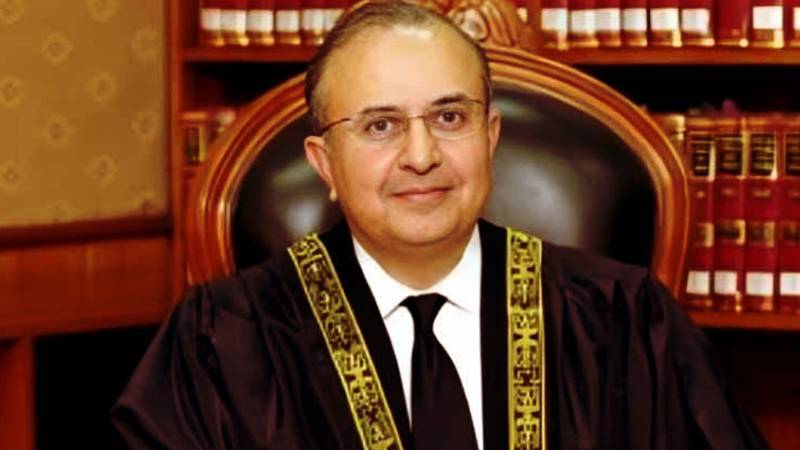
Justice Mansoor Ali Shah observed on Wednesday that the case regarding the bench’s power is not related to the 26th Amendment. Justice Shah further remarked that it is a different matter if someone feels scared or perceives it differently.
Justice Shah made these observations while hearing a matter concerning the non-fixation of a case before the Court and the subsequent contempt of court proceedings against a Supreme Court officer, who had been made an OSD the previous day on the grounds of a ‘mistake’ in fixing the matter of interpretation before a regular bench. Justice Shah was heading a two-member bench, which also included Justice Aqeel Abbasi.
The court directed the Additional Registrar Judicial, Nazar Abbas, to submit a written explanation regarding the removal of the case from the cause list. The bench also appointed two amici curiae following objections raised by the Attorney General for Pakistan (AGP), Mansoor Usman Awan.
During the course of the hearing, Justice Shah questioned the extent of Nazar Abbas’s involvement in the decision to remove the case from the roster. Abbas appeared before the court and was asked to provide a written response by the end of the day.
AGP Awan argued that the appointment of amici curiae (friends of the court) was unprecedented in a contempt case, adding that these amici had already challenged the 26th Amendment. In response to the AGP’s objections, the court appointed senior lawyers Khawaja Haris and Ahsan Bhoon as amici curiae.
AGP Awan further stated that his role in contempt proceedings was different, as he could appear as a prosecutor in the contempt case and also assist the court on legal questions under Section 27A.
Justice Shah said that the question before the court was related to Section 2 of the Practice and Procedure Act. He further inquired whether a case under consideration by a bench, which is examining its jurisdiction, could be withdrawn from that bench. Justice Shah also observed that this case had no connection with the 26th Amendment and added that it was a different matter if someone perceived it differently. He noted that the Committee’s decisions had been produced in defense of Nazar Abbas.
AGP Awan contended that until Nazar Abbas submitted his written response, the Registrar’s earlier defense could not be considered conclusive. He added that the court’s jurisdiction in contempt cases was limited. He further argued that bench formation fell under the purview of the constitutional committee, as per the 26th Amendment.
During the hearing, Amicus Curiae Munir A. Malik proposed the formation of a full court to address the matter. Justice Shah questioned whether a full court could be formed in contempt proceedings.
Munir A. Malik responded that the committee’s decision had been presented as a defense and that the court could issue a full court order at the discretion of the committee. Malik further contended that the constitutional bench was merely a section of the Supreme Court, and that cases should first be reviewed by the Practice and Procedure Committee. He suggested that the three-member committee should decide which cases should be sent to the constitutional bench.
"In my opinion, the committee cannot overturn a judicial order with an administrative order," said Malik. He also mentioned that a press release issued the previous day stated that the case had been mistakenly placed before the regular bench. He argued that even if it was a mistake, a judicial order had now been made and could only be changed by another judicial order. Malik added that this matter was now related to the independence of the judiciary and could only be permanently resolved by the full court.
Another amicus, Hamid Khan, also presented his arguments, stating that the administrative forum was bound to comply with judicial orders. Justice Shah questioned whether the Supreme Court could direct the formation of a 9-member bench in any case. Hamid Khan responded that if the court issued an order for the formation of a nine-member bench, the order would have to be complied with. He also asserted that a regular bench could hear matters related to constitutional questions. He contended that the Supreme Court, as established by the Constitution, consists of the Chief Justice and other judges. The court adjourned the hearing until tomorrow.

